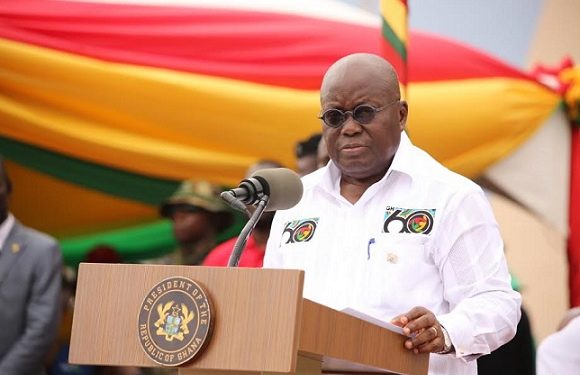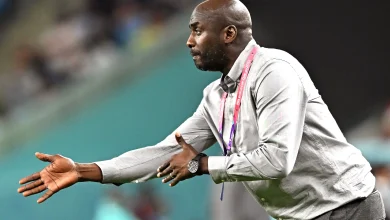
Akufo-Addo calls for accelerated vaccine production in Africa.
President Nana Akufo-Addo has emphasised the critical need for accelerated and sustainable vaccine production in Africa.
Speaking at the Global Forum for Vaccine Sovereignty and Innovation which was hosted by France, the African Union and Gavi, the forum serves as a pivotal platform for advancing vaccine sovereignty and fostering innovation.
President Akufo-Addo highlighted the recent approval of the African Vaccine Manufacturing Accelerator (AVMA) during the Gavi Board meeting in Accra.
This initiative, spearheaded by Gavi and the Africa Centre for Disease Control and Prevention, aligns with the African Union’s goal to manufacture at least 60% of the continent’s vaccine doses by 2040.
Underscoring Ghana’s longstanding dedication to vaccination, the President mentioned the country’s high immunisation coverage rates achieved through organised campaigns and routine services.
Despite the challenges posed by the COVID-19 pandemic, Ghana integrated COVID-19 vaccination into its routine programs, maintaining robust immunization efforts.
Addressing the delays and challenges faced during the global COVID-19 vaccine rollout, President Akufo-Addo acknowledged the impact on Ghana’s vaccination campaigns.
Delays in vaccine supplies and misconceptions about vaccines contributed to vaccine hesitancy and disparities in coverage. However, Ghana’s commitment to accelerating sustainable vaccine manufacturing remains steadfast.
He also emphasized the importance of public-private partnerships in advancing vaccine manufacturing in Africa.
Gavi currently supports approximately 80% of vaccine costs in Ghana, with the government covering about 15%.
The goal is to achieve full self-financing by January 2030, marking a significant shift towards self-sufficiency in health financing.
Ghana plans to expand its vaccination schedule to include Malaria, Human Papillomavirus (HPV), Hepatitis B, and additional doses of Inactivated Polio Vaccine (IPV).
The geographical coverage of the malaria vaccine will increase significantly, from 136 to 261 districts by 2030.
The newly introduced Health Financing Strategy 2023-2030 calls for increased resources for health, particularly preventive services.
It advocates for investment, increased advocacy, and public-private partnerships. Ghana aims to explore new procurement opportunities, including pooled procurement arrangements with ECOWAS member states and other regional economic blocs.
In May 2023, Ghana established the Ghana National Vaccine Institute to coordinate vaccine research, development, and manufacturing.
The Institute is working to establish domestic vaccine manufacturing plants and market development, supporting human resource capacity-building and strengthening research and development.
It collaborates with regulatory bodies to ensure adherence to global standards and facilitate technology transfer.
President Akufo-Addo detailed efforts to strengthen the Food and Drugs Authority (FDA), recognized by the World Health Organisation as a level 3 regulator for vaccines.
These efforts include constructing cleanrooms, establishing a molecular biology laboratory, and upgrading regulatory information management systems.
The FDA’s role in providing regulatory support to domestic vaccine manufacturers like DEK Vaccines and Atlantic Lifesciences was also highlighted.
President Akufo-Addo concluded his address by commending the collaborative efforts leading to the Global Forum for Vaccine Sovereignty and Innovation.
OTHER NEWS: Parliament must summon Lands Minister over alleged sale of state lands
He expressed optimism about the future of sustainable vaccine production in Africa, marking the forum as a historic milestone in global health efforts.



